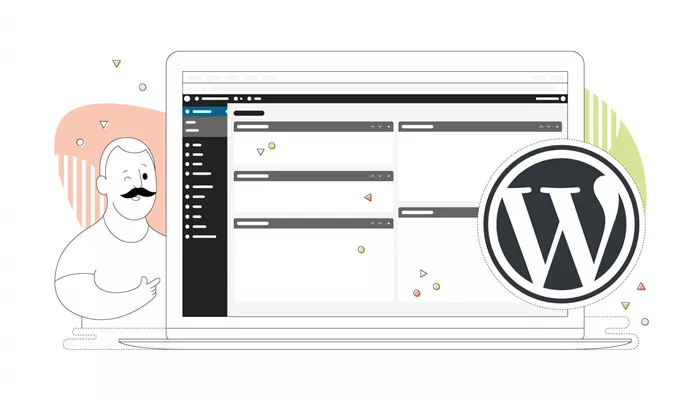As search technology evolves, traditional ranking methods are giving way to AI-powered features that deliver direct answers to users. For WordPress site owners, this shift demands a fresh approach to SEO strategies to remain visible and competitive in search results. Experts emphasize the importance of optimizing WordPress content specifically for AI-driven search engines to maintain a strong online presence.
The Changing Landscape of SEO in the Age of AI
Search engines today no longer simply rank web pages based on keywords and backlinks. Advanced AI technologies such as Bing Copilot, ChatGPT, and Perplexity now summarize and synthesize content to provide concise, accurate answers. This transformation means securing a spot on the first page of search results is no longer sufficient. Content must be clear, trustworthy, and structured in a way that AI systems can easily interpret and reference.
Unlike traditional SEO which emphasized content volume and backlink quantity, AI-driven search prioritizes relevance, quality, and clarity. Content that offers real value and can be directly quoted in AI-generated answers stands a better chance of being surfaced. Websites failing to meet these standards risk losing visibility in AI-powered searches.
Why WordPress Users Should Pay Attention
WordPress remains the world’s most popular content management system due to its user-friendly nature and flexibility. However, many WordPress themes and plugins were designed before AI-driven search became widespread. Standard WordPress setups often generate complex HTML with excessive div tags and scripts, creating challenges for large language models (LLMs) to parse content accurately.
To adapt, WordPress site owners need to optimize their sites not only for human visitors but also for AI algorithms. This includes simplifying the code structure, employing semantic HTML elements, and producing content that AI can easily digest.
The Pitfalls of Low-Quality Content
A common error among WordPress users is focusing on content created solely to manipulate search rankings or generate ad revenue. AI-powered search increasingly penalizes such keyword-stuffed, low-value content. Instead, search engines reward authoritative, reliable content that genuinely benefits users.
Sites prioritizing quantity over quality or relying on spammy tactics are likely to be bypassed by AI search engines in favor of credible sources. The era of easy traffic from shallow content is fading. Success now depends on delivering meaningful, well-researched articles that provide real insight.
Best Practices for WordPress SEO in AI Search
Choosing lightweight, well-coded WordPress themes that use semantic HTML tagsis crucial. Themes or page builders that depend heavily on containers and JavaScript can confuse AI and hinder content comprehension.
If the current theme is unsuitable, site owners should consider customizing through child themes or professional developer support. Clean, predictable markup allows AI to accurately interpret the structure and hierarchy of content.
Key WordPress SEO Optimizations
Improving site speed is essential by optimizing images, utilizing caching plugins, and deploying Content Delivery Networks (CDNs). Fast-loading pages enhance user experience and facilitate AI bots in crawling and indexing efficiently.
Removing inactive plugins and unused themes reduces security vulnerabilities and clutter, improving site performance—a factor favored by AI-driven search algorithms.
Simplifying Content for AI Accessibility
Interactive features such as tabs, accordions, or popups often conceal information behind JavaScript triggers, making it difficult for AI to access. To maximize visibility, critical content should be present in the static HTML at page load.
Replacing JavaScript-heavy components with inline content or anchor links enables AI models to locate and interpret key information easily. Minimizing distractions from widgets or autoplay sliders sharpens clarity for both users and search engines.
Leveraging WordPress SEO Plugins Effectively
Modern SEO plugins extend beyond schema markup by managing metadata, highlighting primary content, and providing author information—elements that influence AI’s assessment of trust and authority.
However, activating schema settings alone won’t improve a site’s EEAT (Experience, Expertise, Authority, Trustworthiness). Authentic content and well-established author profiles linked across the website are necessary to build credibility.
Plugins that generate tables of contents can assist AI by clearly outlining page structure, making it easier to extract and summarize key points.
Creating AI-Friendly Content
Content should be organized with clear headings and concise paragraphs focused on a single idea. Numbered steps for instructions and tables for comparisons make information easier to parse.
Placing core insights early in the text is important because AI models, like human readers, lose focus over time. Frontloading key points improves the chances of being featured in AI answer boxes.
Using explicit language cues such as “Step 1,” “Key takeaway,” or “In summary” helps AI identify the content’s structure and purpose, enhancing both readability and machine interpretation.
Establishing Authority for AI Recognition
WordPress facilitates prominently displaying author credentials and profiles. Including detailed biographies, qualifications, and linking authorship throughout content signals expertise to AI systems.
Internal linking to cornerstone articles demonstrates comprehensive knowledge and helps AI grasp the thematic authority of a website. Regularly updating content with clear timestamps reinforces freshness and trustworthiness.
Conclusion
WordPress can thrive in the AI-driven search environment when used as a powerful platform rather than a shortcut for quick SEO wins. Success depends on helping AI models truly understand the value and relevance of your content to justify citation.
Focusing on structure, clarity, originality, and consistency is essential. Content must serve the AI that generates useful, accurate answers—not just traditional crawlers relying on keyword density and backlinks.
With thoughtful optimization, WordPress site owners possess the right tools to succeed in this new era of search.
Related Topics
- WordPress’s Jubilee of Absolution Is Still Changing Its Community
- Why Is WordPress Multisite Ideal for Managing Multiple Brands?
- WordPress Wishlist Plugin Vulnerability Affects 100,000+ Sites

